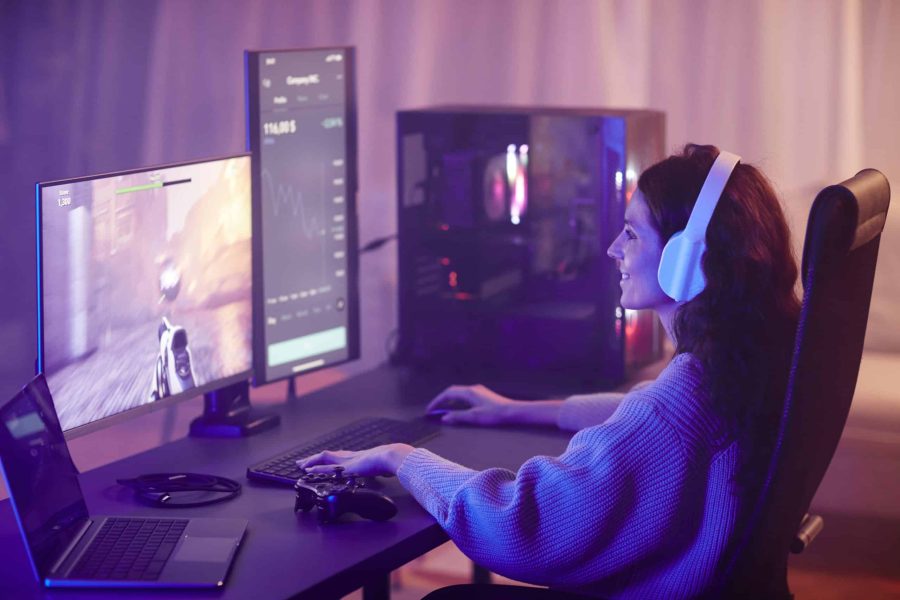You all know social media plays a significant role in today’s society and can be an invaluable tool for keeping connected to friends, family, and the world. But you don’t always consider the potential impact this 24/7 online lifestyle can have on your mental health. With constant notifications, posts of idealized lives, and pressure to stay constantly engaged with followers – there can be serious consequences on your well-being if you’re not mindful of how much time you spend absorbing these screens daily. This article explores in depth the potential dangers associated with too much time invested in social media platforms that are often used rather casually by most people.
Contents
The Rise Of Social Media
Over the past decade, social media use has skyrocketed. Statistics show that 74% of adult internet users now regularly use at least one form of social media. You have seen platforms such as Facebook gain immense popularity and penetration across various demographics in almost every country worldwide. Companies have had to consider the rise in social media use when devising marketing strategies and consumer products.
This usage wave presents positives and negatives, depending on how it is used. On the more positive side, it has connected many more people than ever before. It also serves as an effective tool for marketing, provided it is used correctly with appropriate amounts of thought and resources put behind it.
The Impact Of Social Media On Mental Health
So how does social media affect your mental health? Below are some potential risks to be aware of:
Cyberbullying

Social media has greatly impacted mental health—particularly for emerging generations. Cyberbullying has become rampant, leaving victims feeling criticized and exposed. Cyberbullies can take advantage of the anonymity provided by the internet to target their victims without fear of reprisal. This means that victims cannot defend themselves and are forced to endure widespread humiliation and shame until they can find ways to disengage or block an aggressor to move past the bullying.
The danger with cyberbullying is that it transcends physical boundaries, making it nearly impossible for those being victimized to escape its negativity and psychological toll. Studies have shown that cyberbullying has increased anxiety, depression, isolation, problems at home and work, difficulty concentrating, low self-esteem, and even suicide in extreme cases.
Addiction

In the age of social media, where staying logged on is both expected and encouraged, it’s not surprising that addiction to these platforms has become a growing issue for many people. With an almost overwhelming abundance of online content, individuals can quickly get caught up in a cycle of scrolling, only to find themselves more overwhelmed than before. The sense of disconnection that this compulsive behavior can lead to can create real difficulty in managing anxiety and depression.
It is important to be mindful of how much time one spends online, as this may reveal potential warning signs or undercurrents concerning overall mental health. By encouraging meaningful connections with the world off-screen, it is possible to break this unhealthy habit and create a healthier relationship between oneself and digital activities.
Sleep Disturbance

The pervasive presence of smart devices and social media as part of your daily function has brought its share of benefits. Still, it has also had considerable repercussions on mental health. Irregular sleep patterns caused by electronic gadgets can lead to insomnia and other sleep disorders, making the body susceptible to stress-induced illnesses. The ill effects are further intensified by blue light from the device screens that further disrupt your internal body clock leading to health problems.
Research reveals that prolonged exposure to blue light affects your productivity, energy, and overall neurological functioning, which can cause several mental health issues. All in all, it is important to get enough shut-eye, quality rest, and sound sleep to foster a balance between mental and physical well-being.
Fear Of Missing Out

Social media is evolving how you interact with each other and the world around you, but it does not come without consequences. One of these unfortunate effects is known as Fear of Missing Out (FOMO). This phenomenon involves a person feeling anxious and pressured to be part of everything happening in their digital lives – whether attending certain events or always having their notifications turned on to stay current.
Unfortunately, this mental state can lead to stress and lack of focus, decreasing overall productivity and threatening one’s mental health. It can also impact sleep quality, which may contribute to further issues with anxiety, depression, and general dissatisfaction with life. To combat FOMO, individuals need to become more mindful of their online behavior and permit themselves to take regular breaks from the online world.
Disconnection From Reality

In this age of social media, it is easier than ever to create a polished version of your life online that doesn’t always accurately reflect what’s happening. This disconnect from reality often makes people dissatisfied with their lives as they compare it with fabricated images online.
The disconnection created by these curated depictions of everyday life has started to take its toll on mental health, leading many to experience anxiety and depression. People should be mindful of how much time they spend focusing on others’ pictures, posts, and stories rather than living in the present moment and expressing gratitude for what they already have.
Information Overload

The rising prevalence of social media and its seemingly never-ending stream of notifications has created a world in which you are overwhelmed by information. It’s hard to keep up with the news, updates, and content flooding your screen, but unfortunately, when you don’t, it can cause you to become increasingly stressed and anxious. What’s worst is that this state of overwhelm and overstimulation can incredibly damage your mental health, resulting in prolonged burnout and distress. As a result, users of social media need to take steps to protect their mental health amidst the noise. Doing so can help safeguard users from experiencing information overload-related symptoms.
Be Aware Of The Effects Social Media Has On Your Health!
In conclusion, it is essential to be aware of social media’s impact on mental health and well-being. While it has benefits, it is important to consider the potential risks of prolonged use, such as FOMO, disconnection from reality, and information overload. To protect your mental health, you need to be mindful of your time on social media and be aware of the content you’re consuming. Additionally, it’s also important to take regular breaks from your devices and establish boundaries between yourself and the digital world. By doing so, you can ensure that your mental health remains in check while enjoying social media’s benefits.


